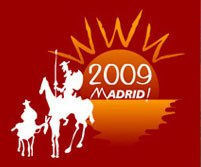|
|
|
|

Semantics for the Rest of Us -- Variants of Semantic Web Languages in the Real WorldHeld in conjunction with 18th Int. World Wide Web Conference (WWW 09)
|
|
|
This workshop has been postponed to ISWC 2009 ObjectivesThe Semantic Web is a broad vision of the future of personal computing, emphasizing the use of sophisticated knowledge representation as the basis for end-user applications' data modeling and management needs. Key to the pervasive adoption of Semantic Web technologies is a good set of fundamental "building blocks" - the most important of these are representation languages themselves. W3C's standard languages for the Semantic Web, RDF and OWL, have been around for several years; instead of strict standards compliance, we see "variants" of these languages emerge in applications, often tailored to a particular application's needs. These variants are often either subsets of OWL or supersets of RDF, typically with fragments OWL added. Extensions based on rules, such as SWRL and N3 logic, have been developed as well as enhancements to the SPARQL query language and protocol (http://esw.w3.org/topic/SPARQL/Extensions).In this workshop we will explore the landscape of RDF, OWL and SPARQL variants, specifically from the standpoint of "real-world semantics". Are there commonalities in these variants that might suggest new standards or new versions of the existing standards? We hope to identify common requirements of applications consuming Semantic Web data and understand the pros and cons of a strictly formal approach to modeling data versus a "scruffier" approach where semantics are based on application requirements and implementation restrictions. The workshop will encourage active audience participation and discussion and will include a keynote speaker as well as a panel moderated by Jim Hendler. Topics of interestOur main topics of interest include but are not limited to
Organizers
Program Committee
PanelModerator: Jim Hendler, RPIPanelists Ivan Herman, W3C Peter Mika, Yahoo Submission
Important DatesPaper submission: February 15th, 2009Notification: March 8th, 2009 Camera ready papers: March 13th, 2009 Workshop: April 21th, 2009 maintained by Lalana Kagal $Revision: 26364 $ $Date: 2009-06-17 00:07:02 -0400 (Wed, 17 Jun 2009) $ |
|